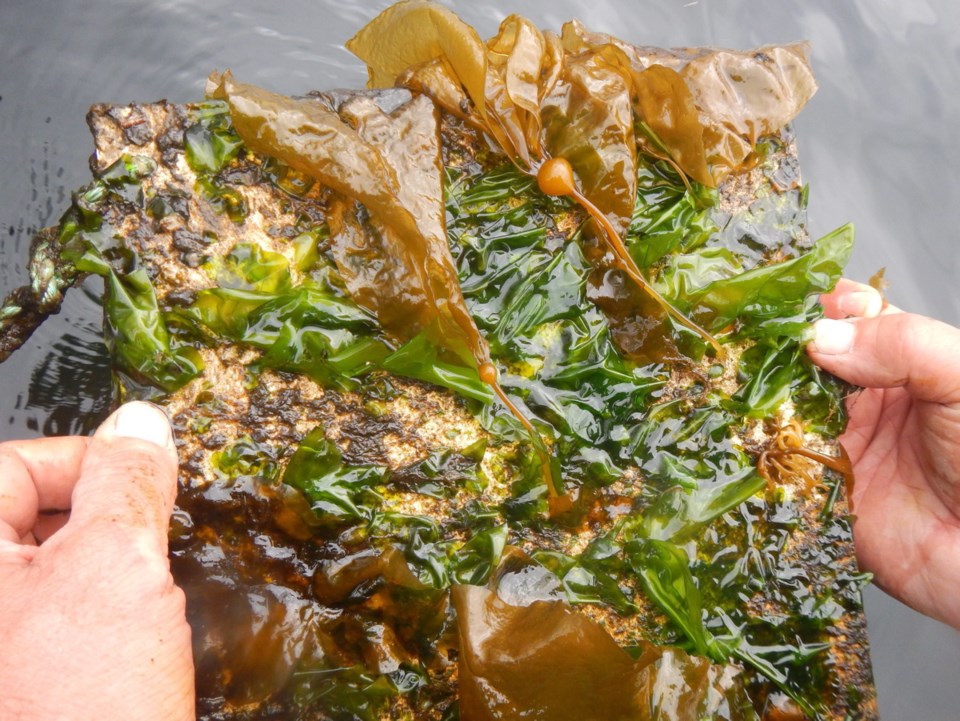A new research project is delving into the favoured locations and condition of wild bull kelp in inlets in B.C.’s south coast, east of Campbell River.
The aquatic study, supported by the Kwiakah First Nation, comes amid worries that kelp forests are in decline along B.C.’s coast.
Kelp forests are critical habitat for a variety of marine species, including salmon and herring. Changes in the ecosystem, including an increase in urchins foraging on kelp, and climate change are all believed to impact these forests.
North Island College’s Centre for Applied Research, Technology and Innovation is collaborating with the Kwiakah First Nation to map where kelp beds are growing and assess their condition.
Surveys will be carried out in the Phillips and Frederick Arm region, where bull kelp (Nereocystis luetkeana) is found in inlets bordered by steep rocky shorelines.
Initially, drones will be used to take pictures and video footage of kelp beds. Geographic information embedded within those pictures will allow researchers to visit precise locations via a boat belonging to the A-Tlegay Fisheries Society, which is made up of five First Nations.
Researchers will measure and weigh the kelp, said Allison Byrne, lead researcher at the college’s centre for research. The project will help provide baseline information to monitor any changes in the future.
“We’re constantly learning more about the benefits and complexities of ecosystems supported by wild kelp,” she said. “Taking inventories like this one help us monitor how those wild beds change over time.”
Vessel research will be carried out mainly in August, she said.
The Kwiakah First Nation wants to better understand the state of the wild kelp growing within its territory and to quantify it, Byrne said.
Resulting information could lead to future research in the role bull kelp plays in carbon sequestration in the ocean.
Frank Voelker, head of band management and economic development for the Kwiakah First Nation, contacted the college, concerned about the state of wild kelp beds and the impact of commercial harvest of wild ocean plants.
The Kwiakah are interested in the role kelp plays in the ecosystem.
Kwiakah Chief Steven Dick said the college and its research centre are “leaders in marine research in our region and are the right partner for Kwiakah to explore measures that will help in our efforts to protect the marine environment.”
Research findings will put the Kwiakah in a position to work with the provincial government to carry out effective management of the area, Dick said.
Naomi Tabata, manager of the college’s research centre, said the research is aimed at helping inform activities in the area and would be useful if the Kwiakah Nation is interested in pursuing kelp aquaculture.
Tides Canada and Coast Funds are supporting the program.



